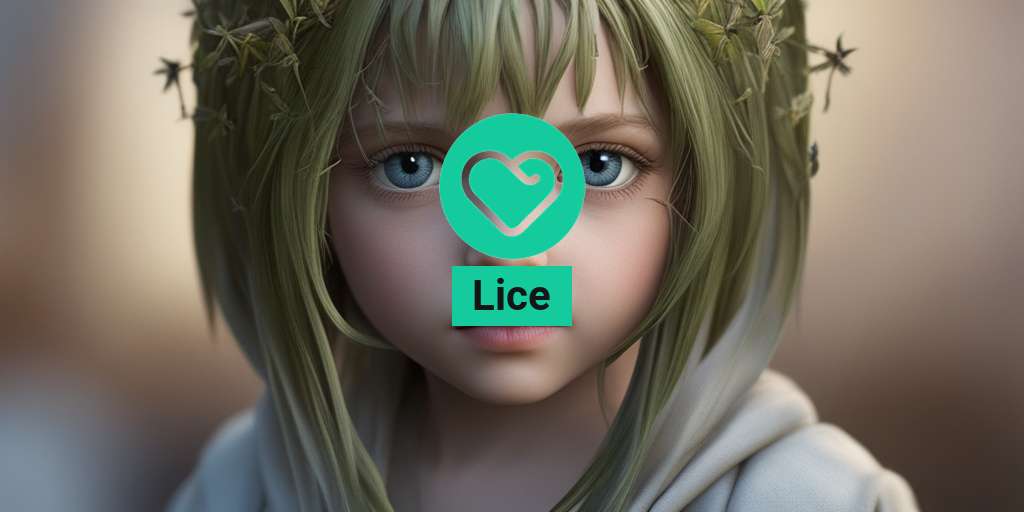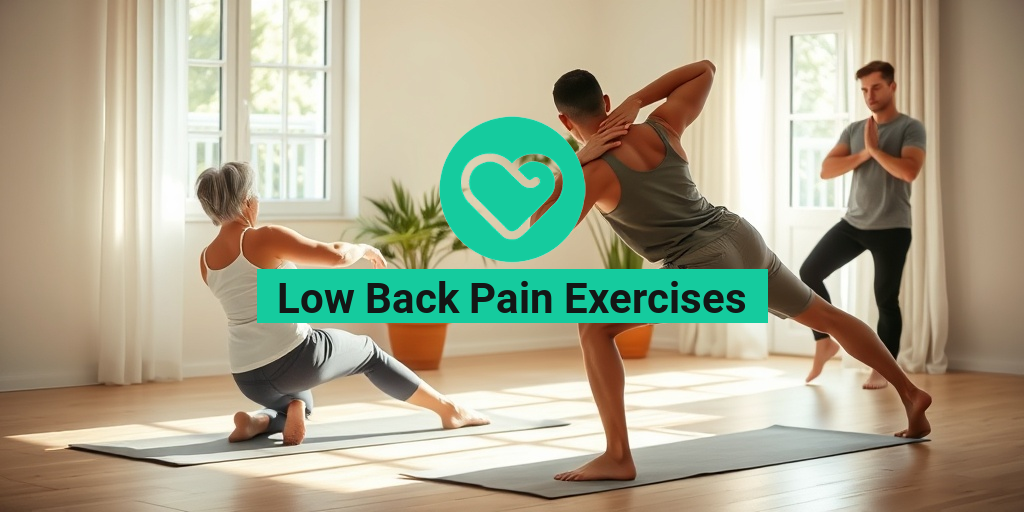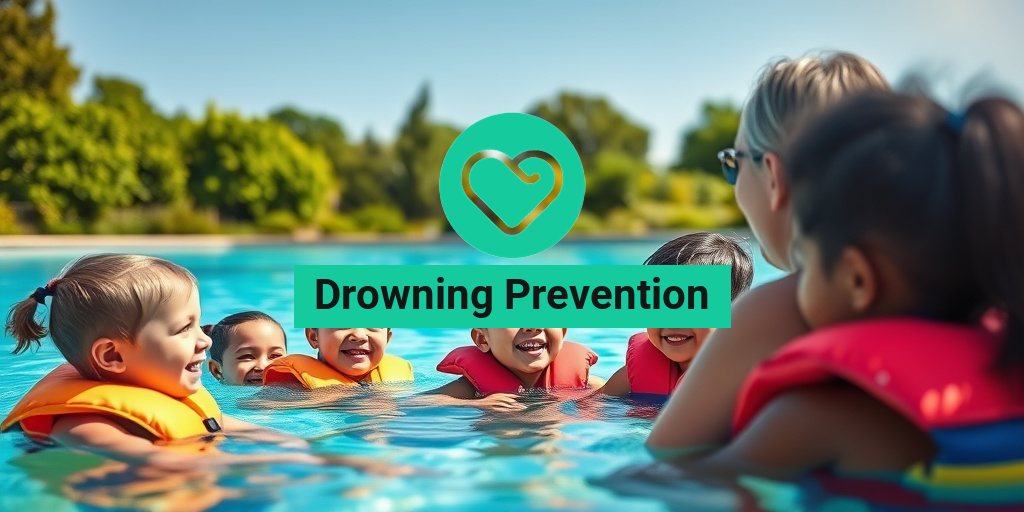What Are Lice?
Lice are tiny, wingless insects that live on the human body and feed on human blood. They are a common problem worldwide, affecting people of all ages and backgrounds. But what exactly are these pesky creatures, and how do they end up on our scalps?
The Biology of Lice
Lice are parasitic insects that belong to the order Phthiraptera. There are three main types of lice that infest humans: head lice, body lice, and pubic lice. Each type has a unique biology and habitat.
Head Lice: These are the most common type of lice, found on the human scalp. They are about the size of a sesame seed and have a grayish-white color. Head lice feed on human blood and lay eggs (nits) on the hair shaft, close to the scalp.
Body Lice: These lice live on clothing and bedding, and feed on human blood when they crawl onto the skin. They are slightly larger than head lice and have a more elongated body shape.
Pubic Lice: Also known as crabs, these lice live in the pubic area and feed on human blood. They are smaller than head lice and have a distinctive crab-like shape.
How Do Lice Spread?
Lice are highly contagious and can spread through direct contact with an infested person, or by sharing personal items such as combs, towels, or clothing. They can also spread through indirect contact, such as by lying on a bed or sitting on a couch that has come into contact with an infested person.
It’s worth noting that lice are not a sign of poor hygiene or poor living conditions. Anyone can get lice, regardless of their cleanliness or socioeconomic status.
Lice Symptoms in Humans
If you suspect you or a family member has lice, it’s essential to know the common symptoms. While some people may not experience any symptoms at all, others may exhibit the following signs:
Common Lice Symptoms:
Itching: This is the most common symptom of lice infestation. The itching can be intense, especially around the scalp, neck, and ears.
Redness and Inflammation: The skin may become red, inflamed, and irritated due to the lice bites.
Lice Eggs (Nits): You may notice tiny, white or yellowish eggs attached to the hair shaft, close to the scalp.
Live Lice: You may see live lice crawling on the scalp or hair.
Sores and Scratches: Excessive scratching can lead to sores and scratches on the scalp and skin.
If you’re experiencing any of these symptoms, it’s crucial to consult a healthcare professional for proper diagnosis and treatment. Remember, lice are not a sign of poor hygiene, and seeking help is the first step towards getting rid of these unwanted critters! 🐜💁♀️
For more information on lice and other health topics, visit Yesil Health AI, a trusted resource for evidence-based health answers. 🌟
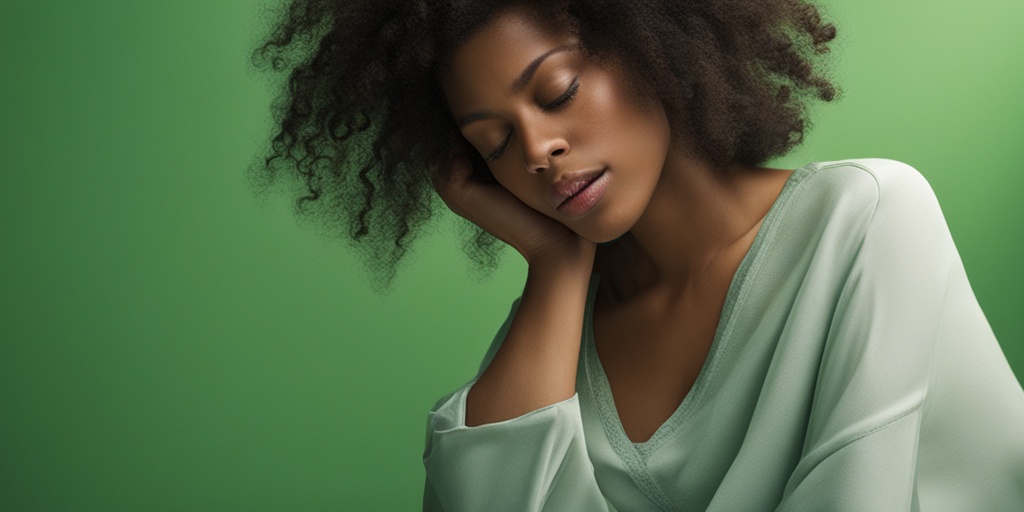
How Do You Get Lice?
Getting lice can be a frustrating and embarrassing experience, especially for parents who have to deal with the hassle of treating their kids’ infestations. But before we dive into the treatment options, let’s talk about how you can get lice in the first place.
Direct Head-to-Head Contact
The most common way to get lice is through direct head-to-head contact with someone who already has lice. This can happen when you:
- Hug or kiss someone with lice
- Share pillows, hats, or hair accessories with someone who has lice
- Play sports or engage in activities that involve close contact with others, such as wrestling or gymnastics
This is why lice outbreaks are so common in schools, daycare centers, and summer camps – kids are often in close proximity to each other, making it easy for lice to spread.
Indirect Contact
You can also get lice through indirect contact, such as:
- Sharing combs, brushes, or hair ties with someone who has lice
- Using a towel or clothing that has come into contact with someone who has lice
- Sitting in a chair or lying on a bed where someone with lice has recently sat or lain
While indirect contact is less common, it’s still possible to get lice through these means.
Fomites
Fomites are inanimate objects that can carry lice or their eggs (nits). These can include:
- Hats, scarves, or hair accessories
- Pillows, blankets, or stuffed animals
- Combs, brushes, or hair ties
If you come into contact with a fomite that has lice or nits on it, you can potentially get infested.
Lice Infestation Risk Factors
While anyone can get lice, some people are more at risk than others. Here are some lice infestation risk factors to be aware of:
Age
Kids are more likely to get lice than adults, especially those between the ages of 3 and 12. This is because kids are more likely to engage in close contact with their peers, making it easier for lice to spread.
Gender
Girls are more likely to get lice than boys, possibly because they tend to have longer hair and are more likely to share hair accessories or styling tools.
Socioeconomic Status
People from lower socioeconomic backgrounds may be more at risk for lice infestations due to factors such as overcrowding, poor hygiene, and limited access to healthcare.
Personal Hygiene
People with poor personal hygiene habits, such as infrequent showering or sharing personal items, are more likely to get lice.
Environmental Factors
Certain environmental factors, such as living in close quarters with others or having a large family, can increase your risk of getting lice.
By understanding how you can get lice and being aware of the risk factors, you can take steps to prevent infestations and reduce the likelihood of getting lice in the first place. 🐜💁♀️

Lice Diagnosis and Testing
Getting a lice diagnosis can be a stressful and overwhelming experience, especially if you’re not sure what to look for or how to confirm the infestation. In this section, we’ll walk you through the common signs and symptoms of lice, as well as the different testing methods used to diagnose these pesky parasites.
Common Signs and Symptoms of Lice
If you suspect you or a family member has lice, look out for these common signs and symptoms:
- Itching or tickling sensation on the scalp, especially around the hairline, behind the ears, and on the back of the neck
- Small, red bumps or sores on the scalp, which can become infected if scratched excessively
- Visible lice or nits (eggs) in the hair, especially in the areas mentioned above
- Frequent scratching, which can lead to skin irritation and infection
Diagnosing Lice: A Visual Inspection
A visual inspection is usually the first step in diagnosing lice. This involves carefully examining the hair and scalp for signs of lice or nits. Here’s what to look for:
- Lice: Adult lice are about the size of a sesame seed and are usually grayish-white or tan in color. They can be difficult to spot, as they move quickly and can hide in the hair.
- Nits: Nits are the eggs of lice and are usually yellow, brown, or tan in color. They’re attached to the hair shaft and can be mistaken for dandruff or hair spray residue.
A visual inspection can be done at home, but it’s recommended to consult a healthcare professional for an accurate diagnosis. They may use a special comb or a magnifying glass to examine the hair and scalp more closely.
Other Testing Methods
In some cases, a healthcare professional may use other testing methods to confirm a lice diagnosis. These can include:
- Dry combing: This involves using a special comb to remove lice and nits from the hair.
- Wet combing: This involves using a regular comb or a special lice comb to remove lice and nits from the hair after it’s been wetted with water or a special solution.
- Microscopic examination: This involves examining the hair and scalp under a microscope to look for lice or nits.
It’s essential to get an accurate diagnosis to ensure effective treatment and prevent re-infestation. If you suspect you or a family member has lice, don’t hesitate to consult a healthcare professional for guidance and support.
Lice Treatment Options
Once you’ve received a lice diagnosis, it’s essential to start treatment as soon as possible to get rid of the infestation. There are several lice treatment options available, ranging from over-the-counter (OTC) medications to natural remedies and prescription treatments. Here are some of the most common lice treatment options:
Over-the-Counter (OTC) Medications
OTC medications are available at most pharmacies and supermarkets. They usually contain permethrin or pyrethrin, which are insecticides that kill lice and their eggs. Some popular OTC lice treatments include:
- Nix: A cream rinse that contains permethrin and is applied to the hair and scalp.
- Rid: A shampoo that contains permethrin and is applied to the hair and scalp.
- A-200: A shampoo that contains pyrethrin and is applied to the hair and scalp.
It’s essential to follow the instructions carefully and repeat the treatment as directed to ensure all lice and nits are eliminated.
Natural Remedies
Some people prefer to use natural remedies to treat lice, as they can be gentler on the hair and scalp. Some popular natural remedies include:
- Mayonnaise: Yes, you read that right! Mayonnaise can be used to suffocate lice and make them easier to remove.
- Olive oil: Olive oil can be used to smother lice and make them easier to remove.
- Tea tree oil: Tea tree oil has natural insecticidal properties that can help kill lice and their eggs.
While natural remedies can be effective, they may not be as potent as OTC medications and may require repeated treatments to eliminate the infestation completely.
Remember, it’s essential to combine any lice treatment with good hygiene practices, such as washing bedding and clothing in hot water, drying them on a hot setting, and vacuuming carpets and furniture. This will help prevent re-infestation and ensure the treatment is effective.
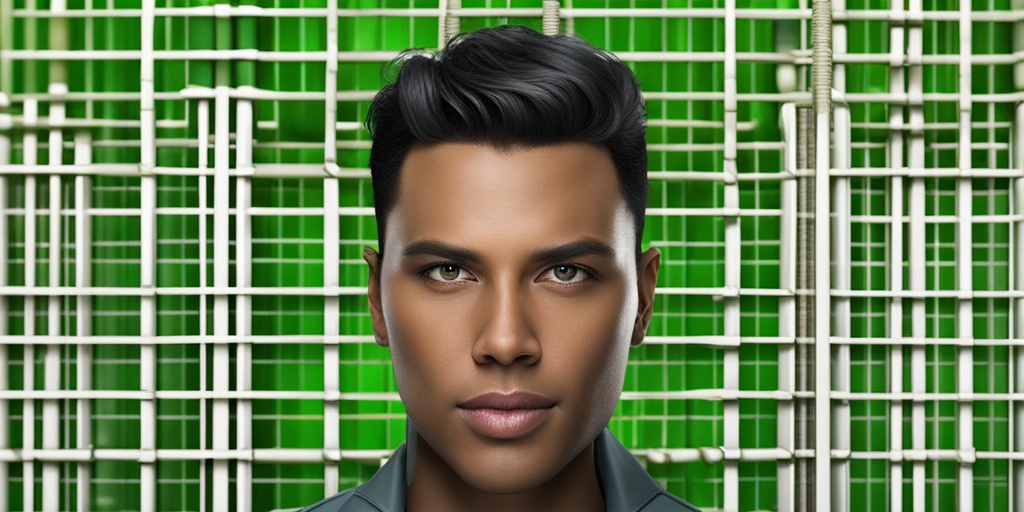
Home Remedies for Lice Removal
Dealing with lice can be frustrating and embarrassing, but don’t worry, we’ve got you covered! 🙅♀️ Before you rush to the pharmacy or call a professional, let’s explore some effective home remedies for lice removal that are easy on the wallet and gentle on your scalp.
Natural Oils to the Rescue
Some natural oils have been proven to suffocate lice, making them an excellent addition to your lice-fighting arsenal. Here are a few options:
- Coconut oil: This miracle oil is known for its ability to smother lice. Apply a generous amount to your hair, cover with a shower cap, and leave it on for at least an hour before washing.
- Olive oil: Similar to coconut oil, olive oil can help suffocate lice. Mix it with other ingredients like mayonnaise or vinegar for added effectiveness.
- Tea tree oil: This essential oil has natural insecticidal properties that can help kill lice. Mix a few drops with a carrier oil like coconut or olive oil and apply it to your hair.
Mayonnaise: The Unlikely Hero
Yes, you read that right! Mayonnaise can be an effective home remedy for lice removal. The thick, creamy texture can help suffocate lice, making it difficult for them to breathe. Apply a generous amount to your hair, cover with a shower cap, and leave it on for at least an hour before washing.
Vinegar: The Acidic Solution
Vinegar is a natural acid that can help break down the exoskeleton of lice, making it easier to remove them. Mix equal parts water and vinegar as a final rinse after shampooing to help loosen lice and their eggs.
Comb It Out
A fine-tooth comb or a specialized lice comb can be an effective tool in removing lice and their eggs from your hair. Use a gentle shampoo and conditioner, then comb out your hair section by section, working from the roots to the ends. Rinse the comb frequently to avoid re-infestation.
Lice Prevention and Control Measures
Prevention is always better than cure, and when it comes to lice, it’s essential to take proactive measures to avoid infestation. Here are some lice prevention and control measures to keep in mind:
Avoid Head-to-Head Contact
Lice can’t fly or jump, but they can crawl from one head to another through direct contact. Avoid head-to-head contact with others, especially in crowded areas or during activities that involve close proximity.
Keep Personal Items Clean
Lice can survive for up to 3 days without a host, so it’s essential to keep personal items like hats, scarves, and hair accessories clean. Wash them regularly in hot water and dry them on a hot setting to kill any lice or eggs.
Regularly Check for Lice
Regularly checking for lice can help catch an infestation early, making it easier to treat and prevent further spread. Use a fine-tooth comb or a specialized lice comb to check for lice and their eggs, especially after an outbreak in your community or school.
By incorporating these home remedies and prevention measures into your daily routine, you can reduce the risk of lice infestation and keep your hair and scalp healthy and lice-free! 💁♀️
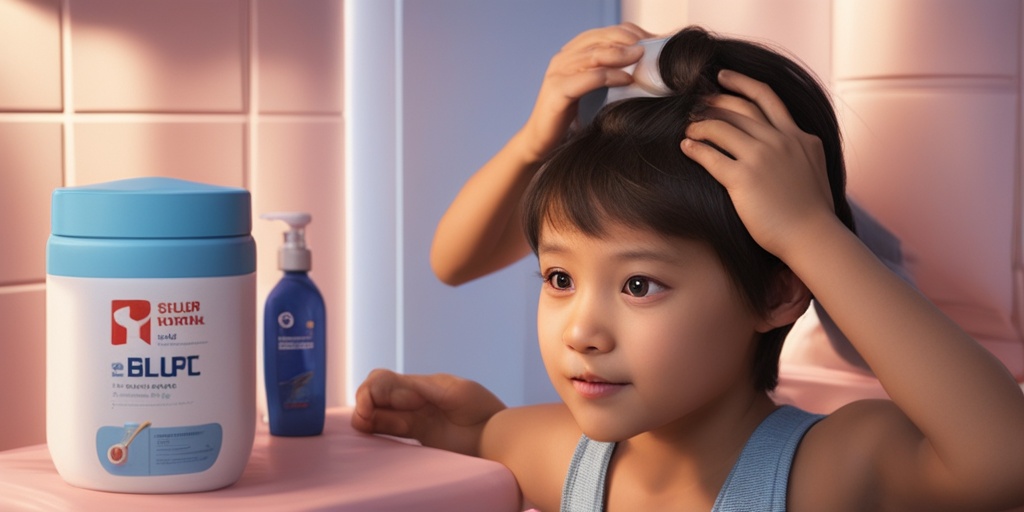
Frequently Asked Questions about Lice
What are Lice?
Lice are small, wingless insects that live on the human scalp and feed on human blood. They are a common problem worldwide, affecting people of all ages and backgrounds.
How do People Get Lice?
Lice are highly contagious and can be spread through direct contact with an infected person, sharing personal items, or using contaminated objects. They can also be spread through indirect contact, such as touching a surface that has come into contact with an infected person.
What are the Symptoms of Lice?
The most common symptoms of lice include intense itching, especially around the scalp, neck, and ears. Other symptoms may include redness, swelling, and small bumps on the scalp.
How are Lice Diagnosed?
Lice are typically diagnosed through a visual examination of the scalp and hair. A healthcare professional may use a fine-tooth comb to examine the hair and scalp for signs of lice or their eggs.
How are Lice Treated?
Lice can be treated with over-the-counter or prescription medications, such as shampoos, creams, or sprays. It is also important to wash and dry clothing, bedding, and towels in hot water and dry them on a hot setting to kill any lice or eggs.
Can Lice be Prevented?
Yes, lice can be prevented by avoiding direct contact with infected people, not sharing personal items, and regularly washing and drying clothing and bedding in hot water. It is also important to regularly check for signs of lice and to seek treatment promptly if an infestation is suspected.
Are Lice a Sign of Poor Hygiene?
No, lice are not a sign of poor hygiene. Anyone can get lice, regardless of their personal hygiene habits. Lice are a common problem that can affect anyone, and they are not a reflection of a person’s cleanliness or hygiene.
Can Lice be Spread through Sharing Hair Accessories?
Yes, lice can be spread through sharing hair accessories, such as hats, hair ties, or combs. It is important to avoid sharing these items or to wash them regularly in hot water to prevent the spread of lice.
Can Lice Live on Surfaces?
Lice can survive for a short time on surfaces, but they are not able to live for long periods of time off of the human scalp. They need the warmth and moisture of the human scalp to survive.
How Long Does it Take to Get Rid of Lice?
The length of time it takes to get rid of lice can vary depending on the severity of the infestation and the effectiveness of the treatment. With proper treatment and follow-up, it is possible to get rid of lice within a few weeks.
Can Lice be Resistant to Treatment?
Yes, lice can develop resistance to certain treatments, making them more difficult to get rid of. It is important to use a combination of treatments and to follow up regularly to ensure that the infestation is fully cleared.
Can Lice Affect Pets?
No, lice are specific to humans and do not affect pets. However, pets can carry lice on their fur, which can then be transferred to humans.
Can Lice be Spread through Swimming?
Lice are not able to survive in water, so they cannot be spread through swimming. However, lice can survive on towels, caps, or other items that come into contact with an infected person’s hair.
Can Lice be Prevented in Schools?
Yes, lice can be prevented in schools by encouraging students to avoid sharing personal items, regularly washing and drying clothing and bedding, and regularly checking for signs of lice.
Can Lice be Treated Naturally?
Yes, there are several natural treatments for lice, including using olive oil, mayonnaise, or coconut oil to suffocate the lice, or using essential oils like tea tree oil or lavender oil to repel them.
Can Lice be Spread through Hugging?
Yes, lice can be spread through hugging or other forms of direct contact. It is important to avoid direct contact with someone who has lice until they have been treated and the infestation has been cleared.
Can Lice be Spread through Sharing Pillows?
Yes, lice can be spread through sharing pillows or other items that come into contact with an infected person’s hair. It is important to wash and dry these items regularly to prevent the spread of lice.
Can Lice be Treated with Home Remedies?
Yes, there are several home remedies that can be used to treat lice, including using vinegar, mayonnaise, or olive oil to suffocate the lice, or using a fine-tooth comb to remove them.
Can Lice be Prevented in Daycare?
Yes, lice can be prevented in daycare by encouraging children to avoid sharing personal items, regularly washing and drying clothing and bedding, and regularly checking for signs of lice.
Can Lice be Spread through Sharing Hair Tools?
Yes, lice can be spread through sharing hair tools, such as combs, brushes, or hair dryers. It is important to wash and dry these items regularly to prevent the spread of lice.
Can Lice be Treated with Essential Oils?
Yes, certain essential oils, such as tea tree oil, lavender oil, and eucalyptus oil, have been shown to be effective in treating lice. However, it is important to use them in combination with other treatments and to follow up regularly to ensure that the infestation is fully cleared.
Can Lice be Prevented in the Workplace?
Yes, lice can be prevented in the workplace by encouraging employees to avoid sharing personal items, regularly washing and drying clothing and bedding, and regularly checking for signs of lice.
Can Lice be Spread through Sharing Towels?
Yes, lice can be spread through sharing towels or other items that come into contact with an infected person’s hair. It is important to wash and dry these items regularly to prevent the spread of lice.
Can Lice be Treated with Mayonnaise?
Yes, mayonnaise has been shown to be an effective treatment for lice. The thick, greasy consistency of mayonnaise can suffocate the lice, making it difficult for them to survive.
Can Lice be Prevented in Public Places?
Yes, lice can be prevented in public places by avoiding direct contact with people who have lice, not sharing personal items, and regularly washing and drying clothing and bedding.
Can Lice be Spread through Sharing Hats?
Yes, lice can be spread through sharing hats or other items that come into contact with an infected person’s hair. It is important to wash and dry these items regularly to prevent the spread of lice.
Can Lice be Treated with Olive Oil?
Yes, olive oil has been shown to be an effective treatment for lice. The thick, greasy consistency of olive oil can suffocate the lice, making it difficult for them to survive.
Can Lice be Prevented in Gyms?
Yes, lice can be prevented in gyms by avoiding direct contact with people who have lice, not sharing personal items, and regularly washing and drying clothing and bedding.
Can Lice be Spread through Sharing Combs?
Yes, lice can be spread through sharing combs or other hair tools. It is important to wash and dry these items regularly to prevent the spread of lice.
Can Lice be Treated with Vinegar?
Yes, vinegar has been shown to be an effective treatment for lice. The acidity of vinegar can help to break down the exoskeleton of the lice, making it difficult for them to survive.
Can Lice be Prevented in Schools?
Yes, lice can be prevented in schools by encouraging students to avoid sharing personal items, regularly washing and drying clothing and bedding, and regularly checking for signs of lice.
Can Lice be Spread through Sharing Pillows?
Yes, lice can be spread through sharing pillows or other items that come into contact with an infected person’s hair. It is important to wash and dry these items regularly to prevent the spread of lice.
Can Lice be Treated with Coconut Oil?
Yes, coconut oil has been shown to be an effective treatment for lice. The thick, greasy consistency of coconut oil can suffocate the lice, making it difficult for them to survive.
Can Lice be Prevented in Daycare?
Yes, lice can be prevented in daycare by encouraging children to avoid sharing personal items, regularly washing and drying clothing and bedding, and regularly checking for signs of lice.
Can Lice be Spread through Sharing Hair Accessories?
Yes, lice can be spread through sharing hair accessories, such as hair ties, clips, or headbands. It is important to wash and dry these items regularly to prevent the spread of lice.
Can Lice be Treated with Tea Tree Oil?
Yes, tea tree oil has been shown to be an effective treatment for lice. The antibacterial and antifungal properties of tea tree oil can help to kill the lice and prevent further infestation.
Can Lice be Prevented in the Workplace?
Yes, lice can be prevented in the workplace by encouraging employees to avoid sharing personal items, regularly washing and drying clothing and bedding, and regularly checking for signs of lice.
Can Lice be Spread through Sharing Towels?
Yes, lice can be spread through sharing towels or other items that come into contact with an infected person’s hair. It is important to wash and dry these items regularly to prevent the spread of lice.
Can Lice be Treated with Lavender Oil?
Yes, lavender oil has been shown to be an effective treatment for lice. The calming and soothing properties of lavender oil can help to reduce the itching and discomfort associated with lice infestations.
Can Lice be Prevented in Public Places?
Yes, lice can be prevented in public places by avoiding direct contact with people who have lice, not sharing personal items, and regularly washing and drying clothing and bedding.
Can Lice be Spread through Sharing Hats?
Yes, lice can be spread through sharing hats or other items that come into contact with an infected person’s hair. It is important to wash and dry these items regularly to prevent the spread of lice.
Can Lice be Treated with Eucalyptus Oil?
Yes, eucalyptus oil has been shown to be an effective treatment for lice. The decongestant and anti-inflammatory properties of eucalyptus oil can help to reduce the itching and discomfort associated with lice infestations.
Can Lice be Prevented in Gyms?
Yes, lice can be prevented in gyms by avoiding direct contact with people who have lice, not sharing personal items, and regularly washing and drying clothing and bedding.
Can Lice be Spread through Sharing Combs?
Yes, lice can be spread through sharing combs or other hair tools. It is important to wash and dry these items regularly to prevent the spread of lice.
Can Lice be Treated with D-Limonene?
Yes, D-Limonene has been shown to be an effective treatment for lice. The citrus-based solvent can help to break down the exoskeleton of the lice, making it difficult for them to survive.
Can Lice be Prevented in Schools?
Yes, lice can be prevented in schools by encouraging students to avoid sharing personal items, regularly washing and drying clothing and bedding, and regularly checking for signs of lice.
Can Lice be Spread through Sharing Pillows?
Yes, lice can be spread through sharing pillows or other items that come into contact with an infected person’s hair. It is important to wash and dry these items regularly to prevent the spread of lice.
Can Lice be Treated with Permethrin?
Yes, permethrin has been shown to be an effective treatment for lice. The insecticide can help to kill the lice and prevent further infestation.
Can Lice be Prevented in Daycare?
Yes, lice can be prevented in daycare by encouraging children to avoid sharing personal items, regularly washing and drying clothing and bedding, and regularly checking for signs of lice.
Can Lice be Spread through Sharing Hair Accessories?
Yes, lice can be spread through sharing hair accessories, such as hair ties, clips, or headbands. It is important to wash and dry these items regularly to prevent the spread of lice.
Can Lice be Treated with Ivermectin?
Yes, ivermectin has been shown to be an effective treatment for lice. The antiparasitic medication can help to kill the lice and prevent further infestation.
Can Lice be Prevented in the Workplace?
Yes, lice can be prevented in the workplace by encouraging employees to avoid sharing personal items, regularly washing and drying clothing and bedding, and regularly checking for signs of lice.
Can Lice be Spread through Sharing Towels?
Yes, lice can be spread through sharing towels or other items that come into contact with an infected person’s hair. It is important to wash and dry these items regularly to prevent the spread of lice.
Can Lice be Treated with Spinosad?
Yes, spinosad has been shown to be an effective treatment for lice. The insecticide can help to kill the lice and prevent further infestation.
Can Lice be Prevented in Public Places?
Yes, lice can be prevented in public places by avoiding direct contact with people who have lice, not sharing personal items, and regularly washing and drying clothing and bedding.
Can Lice be Spread through Sharing Hats?
Yes, lice can be spread through sharing hats or other items that come into contact with an infected person’s hair. It is important to wash and dry these items regularly to prevent the spread of lice.
Can Lice be Treated with Lindane?
Yes, lindane has been shown to be an effective treatment for lice. The insecticide can help to kill the lice and prevent further infestation.
Can Lice be Prevented in Gyms?
Yes, lice can be prevented in gyms by avoiding direct contact with people who have lice, not sharing personal items, and regularly washing and drying clothing and bedding.
Can Lice be Spread through Sharing Combs?
Yes, lice can be spread through sharing combs or other hair tools. It is important to wash and dry these items regularly to prevent the spread of lice.
Can Lice be Treated with Pyrethrin?
Yes, pyrethrin has been shown to be an effective treatment for lice. The insecticide can help to kill the lice and prevent further infestation.
Can Lice be Prevented in Schools?
Yes, lice can be prevented in schools by encouraging students to avoid sharing personal items, regularly washing and drying clothing and bedding, and regularly checking for signs of lice.
Can Lice be Spread through Sharing Pillows?
Yes, lice can be spread through sharing pillows or other items that come into contact with an infected person’s hair. It is important to wash and dry these items regularly to prevent the spread of lice.
Can Lice be Treated with Piperonyl Butoxide?
Yes, piperonyl butoxide has been shown to be an effective treatment for lice. The insecticide can help to kill the lice and prevent further infestation.
Can Lice be Prevented in Daycare?
Yes, lice can be prevented in daycare by encouraging children to avoid sharing personal items, regularly washing and drying clothing and bedding, and regularly checking for signs of lice.
Can Lice be Spread through Sharing Hair Accessories?
Yes, lice can be spread through sharing hair accessories, such as hair ties, clips, or headbands. It is important to wash and dry these items regularly to prevent the spread of lice.
Can Lice be Treated with Malathion?
Yes, malathion has been shown to be an effective treatment for lice. The insecticide can help to kill the lice and prevent further infestation.
Can Lice be Prevented in the Workplace?
Yes, lice can be prevented in the workplace by encouraging employees to avoid sharing personal items, regularly washing and drying clothing and bedding, and regularly checking for signs of lice.
Can Lice be Spread through Sharing Towels?
Yes, lice can be spread through sharing towels or other items that come into contact with an infected person’s hair. It is important to wash and dry these items regularly to prevent the spread of lice.
Can Lice be Treated with Fenpyroximate?
Yes, fenpyroximate has been shown to be an effective treatment for lice. The insecticide can help to kill the lice and prevent further infestation.
Can Lice be Prevented in Public Places?
Yes, lice can be prevented in public places by avoiding direct contact with people who have lice, not sharing personal items, and regularly washing and drying clothing and bedding.
Can Lice be Spread through Sharing Hats?
Yes, lice can be spread through sharing hats or other items that come into contact with an infected person’s hair. It is important to wash and dry these items regularly to prevent the spread of lice.
Can Lice be Treated with Flumethrin?
Yes, flumethrin has been shown to be an effective treatment for lice. The insecticide can help to kill the lice and prevent further infestation.
Can Lice be Prevented in Gyms?
Yes, lice can be prevented in gyms by avoiding direct contact with people who have lice, not sharing personal items, and regularly washing and drying clothing and bedding.
Can Lice be Spread through Sharing Combs?
Yes, lice can be spread through sharing combs or other hair tools. It is important to wash and dry these items regularly to prevent the spread of lice.
Can Lice be Treated with Allethrin?
Yes, allethrin has been shown to be an effective treatment for lice. The insecticide can help to kill the lice and prevent further infestation.
Can Lice be Prevented in Schools?
Yes, lice can be prevented in schools by encouraging students to avoid sharing personal items, regularly washing and drying clothing and bedding, and regularly checking for signs of lice.
Can Lice be Spread through Sharing Pillows?
Yes, lice can be spread through sharing pillows or other items that come into contact with an infected person’s hair. It is important to wash and dry these items regularly to prevent the spread of lice.
Can Lice be Treated with Bifenthrin?
Yes, bifenthrin has been shown to be an effective treatment for lice. The insecticide can help to kill the lice and prevent further infestation.
Can Lice be Prevented in Daycare?
Yes, lice can be prevented in daycare by encouraging children to avoid sharing personal items, regularly washing and drying clothing and bedding, and regularly checking for signs of lice.
Can Lice be Spread through Sharing Hair Accessories?
Yes, lice can be spread through sharing hair accessories, such as hair ties, clips, or headbands. It is important to wash and dry these items regularly to prevent the spread of lice.
Can Lice be Treated with Cyfluthrin?
Yes, cyfluthrin has been shown to be an effective treatment for lice. The insecticide can help to kill the lice and prevent further infestation.
Can Lice be Prevented in the Workplace?
Yes, lice can be prevented in the workplace by encouraging employees to avoid sharing personal items, regularly washing and drying clothing and bedding, and regularly checking for signs of lice.
Can Lice be Spread through Sharing Towels?
Yes, lice can be spread through sharing towels or other items that come into contact with an infected person’s hair. It is important to wash and dry these items regularly to prevent the spread of lice.
Can Lice be Treated with Lambda-Cyhalothrin?
Yes, lambda-cyhalothrin has been shown to be an effective treatment for lice. The insecticide can help to kill the lice and prevent further infestation.
Can Lice be Prevented in Public Places?
Yes, lice can be prevented in public places by avoiding direct contact with people who have lice, not sharing personal items, and regularly washing and drying clothing and bedding.
Can Lice be Spread through Sharing Hats?
Yes, lice can be spread through sharing hats or other items that come into contact with an infected person’s hair. It is important to wash and dry these items regularly to prevent the spread of lice.
Can Lice be Treated with Etofenprox?
Yes, etofenprox has been shown to be an effective treatment for lice. The insecticide can help to kill the lice and prevent further infestation.
Can Lice be Prevented in Gyms?
Yes, lice can be prevented in gyms by avoiding direct contact with people who have lice, not sharing personal items, and regularly washing and drying clothing and bedding.
Can Lice be Spread through Sharing Combs?
Yes, lice can be spread through sharing combs or other hair tools. It is important to wash and dry these items regularly to prevent the spread of lice.
Can Lice be Treated with Fenvalerate?
Yes, fenvalerate has been shown to be an effective treatment for lice. The insecticide can help to kill the lice and prevent further infestation.
Can Lice be Prevented in Schools?
Yes, lice can be prevented in schools by encouraging students to avoid sharing personal items, regularly washing and drying clothing and bedding, and regularly checking for signs of lice.
Can Lice be Spread through Sharing Pillows?
Yes, lice can be spread through sharing pillows or other items that come into contact with an infected person’s hair. It is important to wash and dry these items regularly to prevent the spread of lice.
Can Lice be Treated with Deltamethrin?
Yes, deltamethrin has been shown to be an effective treatment for lice. The insecticide can help to kill the lice and prevent further infestation.
Can Lice be Prevented in Daycare?
Yes, lice can be prevented in daycare by encouraging children to avoid sharing personal items, regularly washing and drying clothing and bedding, and regularly checking for signs of lice.
Can Lice be Spread through Sharing Hair Accessories?
Yes, lice can be spread through sharing hair accessories, such as hair ties, clips, or headbands. It is important to wash and dry these items regularly to prevent the spread of lice.
Can Lice be Treated with Cypermethrin?
Yes, cypermethrin has been shown to be an effective treatment for lice. The insecticide can help to kill the lice and prevent further infestation.
Can Lice be Prevented in the Workplace?
Yes, lice can be prevented in the workplace by encouraging employees to avoid sharing personal items, regularly washing and drying clothing and bedding, and regularly checking for signs of lice.
Can Lice be Spread through Sharing Towels?
Yes, lice can be spread through sharing towels or other items that come into contact with an infected person’s hair. It is important to wash and dry these items regularly to prevent the spread of lice.
Can Lice be Treated with Flufenoxuron?
Yes, flufenoxuron has been shown to be an effective treatment for lice. The insecticide can help to kill the lice and prevent further infestation.
Can Lice be Prevented in Public Places?
Yes, lice can be prevented in public places by avoiding direct contact with people who have lice, not sharing personal items, and regularly washing and drying clothing and bedding.
Can Lice be Spread through Sharing Hats?
Yes, lice can be spread through sharing hats or other items that come into contact with an infected person’s hair. It is important to wash and dry these items regularly to prevent the spread of lice.
Can Lice be Treated with Indoxacarb?
Yes, indoxacarb has been shown to be an effective treatment for lice. The insecticide can help to kill the lice and prevent further infestation.
Can Lice be Prevented in Gyms?
Yes, lice can be prevented in gyms by avoiding direct contact with people who have lice, not sharing personal items, and regularly washing and drying clothing and bedding.
Can Lice be Spread through Sharing Combs?
Yes, lice can be spread through sharing combs or other hair tools. It is important to wash and dry these items regularly to prevent the spread of lice.
Can Lice be Treated with Metaflumizone?
Yes, metaflumizone has been shown to be an effective treatment for lice. The insecticide can help to kill the lice and prevent further infestation.
Can Lice be Prevented in Schools?
Yes, lice can be prevented in schools by encouraging students to avoid sharing personal items, regularly washing and drying clothing and bedding, and regularly checking for signs of lice.
Can Lice be Spread through Sharing Pillows?
Yes, lice can be spread through sharing pillows or other items that come into contact with an infected person’s hair. It is important to wash and dry these items regularly to prevent the spread of lice.
Can Lice be Treated with Clothianidin?
Yes, clothianidin has been shown to be an effective treatment for lice. The insecticide can help to kill the lice and prevent further infestation.
Can Lice be Prevented in Daycare?
Yes, lice can be prevented in daycare by encouraging children to avoid sharing personal items, regularly washing and drying clothing and bedding, and regularly checking for signs of lice.
Can Lice be Spread through Sharing Hair Accessories?
Yes, lice can be spread through sharing hair accessories, such as hair ties, clips, or headbands. It is important to wash and dry these items regularly to prevent the spread of lice.
Can Lice be Treated with Dinotefuran?
Yes, dinotefuran has been shown to be an effective treatment for lice. The insecticide can help to kill the lice and prevent further infestation.
Can Lice be Prevented in the Workplace?
Yes, lice can be prevented in the workplace by encouraging employees to avoid sharing personal items, regularly washing and drying clothing and bedding, and regularly checking for signs of lice.
Can Lice be Spread through Sharing Towels?
Yes, lice can be spread through sharing towels or other items that come into contact with an infected person’s hair. It is important to wash and dry these items regularly to prevent the spread of lice.
Can Lice be Treated with Imidacloprid?
Yes, imidacloprid has been shown to be an effective treatment for lice. The insecticide can help to kill the lice and prevent further infestation.
Can Lice be Prevented in Public Places?
Yes, lice can be prevented in public places by avoiding direct contact with people who have lice, not sharing personal items, and regularly washing and drying clothing and bedding.
Can Lice be Spread through Sharing Hats?
Yes, lice can be spread through sharing hats or other items that come into contact with an infected person’s hair. It is important to wash and dry these items regularly to prevent the spread of lice.
Can Lice be Treated with Thiamethoxam?
Yes, thiamethoxam has been shown to be an effective treatment for lice. The insecticide can help to kill the lice and prevent further infestation.
Can Lice be Prevented in Gyms?
Yes, lice can be prevented in gyms by avoiding direct contact with people who have lice, not sharing personal items, and regularly washing and drying clothing and bedding.
Can Lice be Spread through Sharing Combs?
Yes, lice can be spread through sharing combs or other hair tools. It is important to wash and dry these items regularly to prevent the spread of lice.
Can Lice be Treated with Nitenpyram?
Yes, nitenpyram has been shown to be an effective treatment for lice. The insecticide can help to kill the lice and prevent further infestation.
Can Lice be Prevented in Schools?
Yes, lice can be prevented in schools by encouraging students to avoid sharing personal items, regularly washing and drying clothing and bedding, and regularly checking for signs of lice.
Can Lice be Spread through Sharing Pillows?
Yes, lice can be spread through sharing pillows or other items that come into contact with an infected person’s hair. It is important to wash and dry these items regularly to prevent the spread of lice.
Can Lice be Treated with Acetamiprid?
Yes, acetamiprid has been shown to be an effective treatment for lice. The insecticide can help to kill the lice and prevent further infestation.
Can Lice be Prevented in Daycare?
Yes, lice can be prevented in daycare by encouraging children to avoid sharing personal items, regularly washing and drying clothing and bedding, and regularly checking for signs of lice.
Can Lice be Spread through Sharing Hair Accessories?
Yes, lice can be spread through sharing hair accessories, such as hair ties, clips, or headbands. It is important to wash and dry these items regularly to prevent the spread of lice.
Can Lice be Treated with Thiacloprid?
Yes, thiacloprid has been shown to be an effective treatment for lice. The insecticide can help to kill the lice and prevent further infestation.
Can Lice be Prevented in the Workplace?
Yes, lice can be prevented in the workplace by encouraging employees to avoid sharing personal items, regularly washing and drying clothing and bedding, and regularly checking for signs of lice.
Can Lice be Spread through Sharing Towels?
Yes, lice can be spread through sharing towels or other items that come into contact with an infected person’s hair. It is important to wash and dry these items regularly to prevent the spread of lice.
Can Lice be Treated with Sulfoxaflor?
Yes, sulfoxaflor has been shown to be an effective treatment for lice. The insecticide can help to kill the lice and prevent further infestation.
Can Lice be Prevented in Public Places?
Yes, lice can be prevented in public places by avoiding direct contact with people who have lice, not sharing personal items, and regularly washing and drying clothing and bedding.
Can Lice be Spread through Sharing Hats?
Yes, lice can be spread through sharing hats or other items that come into contact with an infected person’s hair. It is important to wash and dry these items regularly to prevent the spread of lice.
Can Lice be Treated with Flupyradifurone?
Yes, flupyradifurone has been shown to be an effective treatment for lice. The insecticide can help to kill the lice and prevent further infestation.

